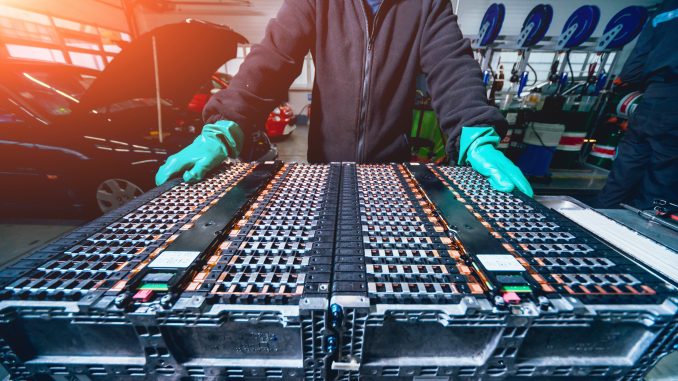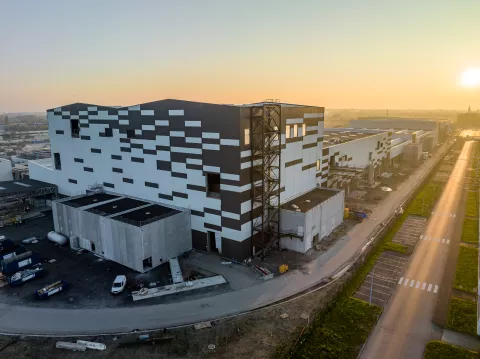
ACC AIMS TO hire 2,000 EMPLOYEES BY 2030
28.6.2023
Posted on SWR by SEBASTIAN STOLLHOF (Südwestdeutscher Rundfunk)
It is a major project that is taking place on the Opel’s factory premises in Kaiserslautern: Automotive Cells Company (ACC) is planning to build a battery cell gigafactory there. What are the biggest challenges along the way?
Excavators are still removing the floor slabs of the former factory halls on the Opel site. The ground work for the battery cell factory is scheduled to begin in August. Its scale can already be guessed at. “It will be a hall of immense proportions, about 700 by 100 meters and up to 28 meters high,” says ACC Germany head Peter Winternheimer. Structural engineering work is then scheduled to start in October.
Mercedes-Benz also involved in Gigafactory
The Automotive Cells Company is a cooperation, a so-called joint venture of the automotive groups Stellantis (Peugeot, Opel) and Mercedes-Benz as well as Total Energies/Saft. “For us as a German location, it is of course important to have a German shareholder in Mercedes-Benz since last year,” says Winternheimer.
PRODUCTION IN KAISERSLAUTERN TO START IN 2025
The first Gigafactory for batteries opened in France

A few weeks ago, the first of three plants was inaugurated in the north of France. However, it will probably take until the end of the year before the first battery cells roll off the production line there. However, the factory should nevertheless provide important insights for Kaiserslautern, emphasizes the ACC Germany boss.
Battery cell factory requires more electric power than all households in Kaiserslautern
There are still a number of challenges for the plant in Kaiserslautern. In the meantime, solutions have been found for a very important one, as Winternheimer says: the power supply. “Battery cell production is associated with a high energy requirement,” says the ACC Germany boss. For example, the plant in Kaiserslautern will consume more electricity than all households in Kaiserslautern need. The approval process is currently underway, and issues such as water supply and wastewater are also being discussed. “The construction work should be completed by the middle of next year, so that we can then start installing the machines and equipment. After all, production is scheduled to go into operation at the beginning of 2025 as planned,” says the head of Germany, giving an insight into the plans.
